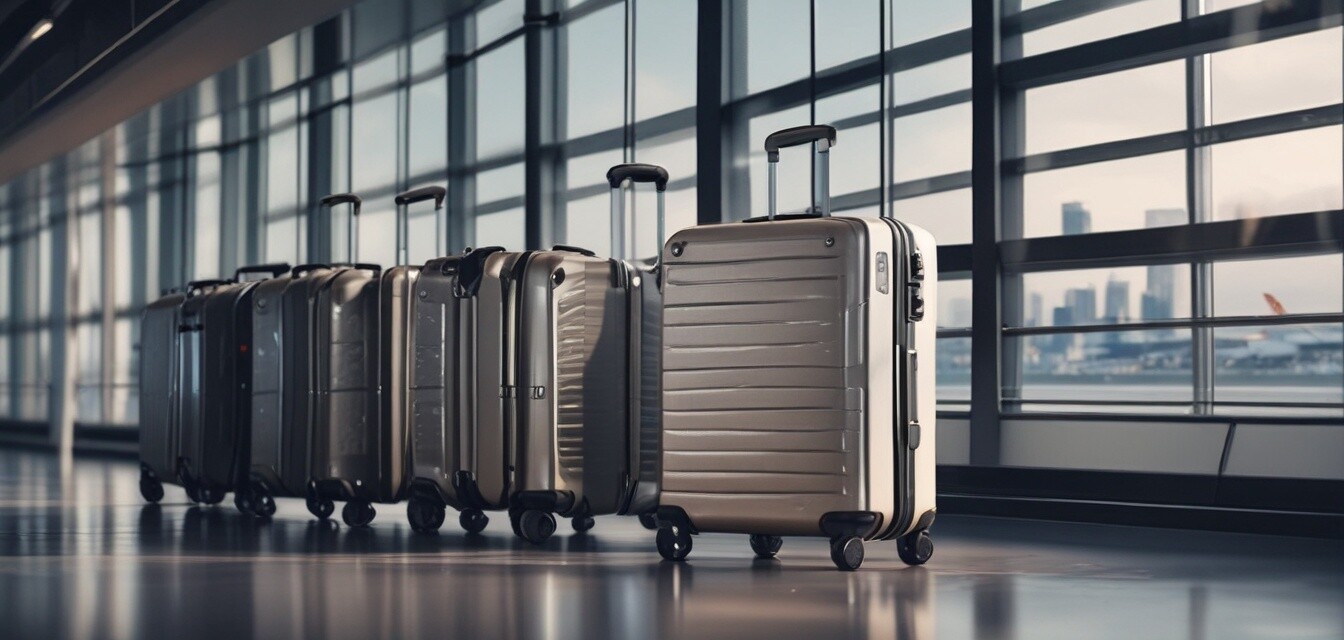
Navigating Airline Policies with Smart Luggage
Key Takeaways
- Airline policies on smart luggage can vary significantly.
- Understanding the battery regulations is crucial for safe travel.
- Staying updated with the latest trends in luggage technology can enhance travel convenience.
- It’s essential to check with airlines before traveling to avoid unexpected issues.
As the travel industry evolves, so too does the technology behind luggage. Smart luggage equipped with GPS tracking is becoming a popular choice among travelers. However, this innovative technology comes with varying airline policies that travelers must navigate. In this comprehensive guide, we'll explore how different airlines handle smart luggage, ensuring you're well-informed for your next journey.
The rise of smart luggage
Smart luggage represents a leap forward in how we carry our belongings. With built-in GPS tracking, charging ports, and innovative designs, these bags provide not just practicality but peace of mind for travelers. However, as they gain popularity, airlines have had to adapt their policies to accommodate these advanced features.
What is smart luggage?
Smart luggage is designed with technology that provides added functionality beyond traditional luggage. Key features often include:
- GPS Tracking: Enables you to locate your luggage via smartphone.
- USB Charging Ports: Allows you to charge devices on the go.
- Remote Locking: Provides security features that can be managed remotely.
Airline policies and regulations
As smart luggage incorporates lithium batteries, airlines have specific regulations that govern their transport. Below is a summary of policies from major airlines regarding smart luggage:
| Airline | Smart Luggage Policy | Batteries Allowed | Comments |
|---|---|---|---|
| American Airlines | Allowed with restrictions | Up to 100Wh | Must have batteries removed for checked bags. |
| Delta Airlines | Allowed but check-in recommended | Up to 300Wh | In charge of removing lithium batteries for checked bags. |
| United Airlines | Allowed but must be declared | Up to 160Wh | Smart luggage must comply with safety regulations. |
| Southwest Airlines | Allowed, some restrictions | Up to 300Wh | Remove batteries for checked baggage. |
Understanding battery regulations
Before embarking on your journey, understanding airline battery regulations is essential. Most airlines have strict policies regarding lithium batteries due to safety concerns. Here’s a breakdown of how to navigate these regulations:
- Check the battery size: Most airlines allow lithium-ion batteries up to 160Wh, while some allow up to 300Wh for carry-on luggage.
- Remove batteries: If your smart luggage has a removable battery, airlines require passengers to take it out for checked luggage.
- Declare your smart luggage: Always inform the airline during check-in that you are traveling with smart luggage.
- Consult airline policies: Each airline has specific guidelines, so it's advisable to check their respective policies.
Tips for traveling with smart luggage
- Always verify the airline's policy before packing your smart luggage.
- Keep documentation of your smart luggage features for airport security checks.
- Consider purchasing a smart bag with a removable battery for easier compliance with regulations.
Staying updated on trends
The smart luggage industry is rapidly evolving. With new technology continually emerging, keeping up with the latest trends can be beneficial. For more insights, don’t forget to check our News & Trends section for information on product launches and technology developments that can enhance your travel experience.
Conclusion
Navigating airline policies with smart luggage may seem daunting, but with the right information, you can travel with confidence. Always check current regulations, stay informed of the latest trends in smart luggage technology, and remember to enjoy your travel experiences without the worry of luggage mishaps. For more guidance on choosing the right luggage, visit our Buying Guides page.